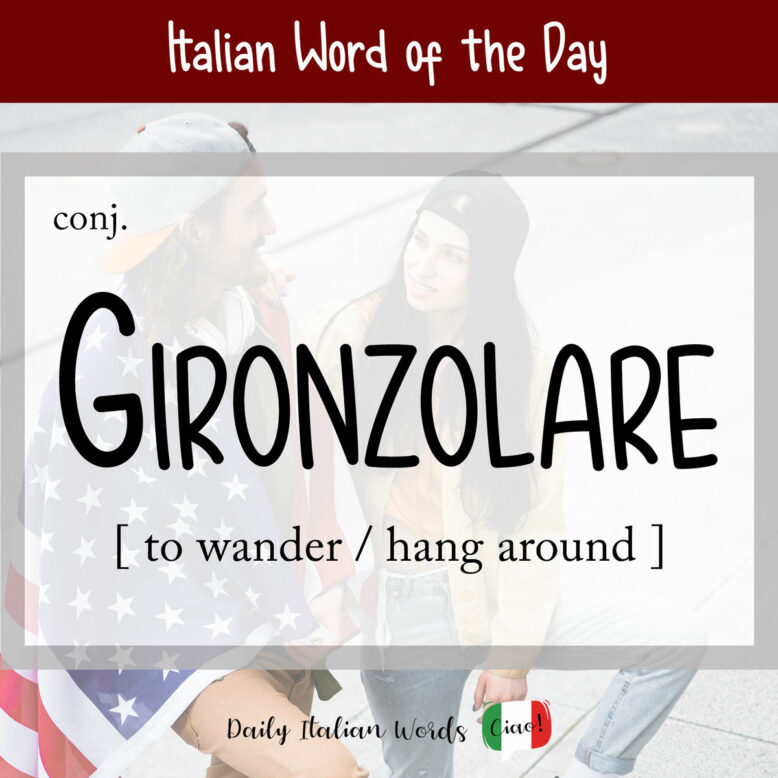Today we’re going to be taking a look at the verb gironzolare, which describes the act of walking or moving around a place without any particular aim. Some possible English translations include to wander, to hang around or to loiter.

As you might have guessed, gironzolare derives from the verb girare which means to turn / to spin or to travel around.
Since gironzolare is a regular -are verb, it is quite easy to conjugate. Here is the full conjugation in the present indicative tense:
(io) gironzolo
I wander
(tu) gironzoli
you (informal) wander
(lui / lei / Lei) gironzola
he/she/you (formal) wander
noi gironzoliamo
we wander
voi gironzolate
you (plural) wander
loro gironzolano
they wander
È da più di tre ore che gironzola per le vie della città. Spero che non si sia persa.
She’s been wandering the city streets for more than three hours. I hope she is not lost.

Sometimes it can denote a suspicious looking individual who is hanging around a place or person.
Hai visto quel tipo strano che gironzola nell’atrio? Cosa vuole, secondo te?
Have you seen that weird guy hanging around in the foyer? What do you think he wants?

It can also be used for a person who hangs around someone else with the intention of pursuing him or her. In this case, it is followed by intorno (a) (with intorno meaning around).
Ci sono sempre un sacco di ragazzi che gironzolano intorno a Laura. – Ti credo. È una bellissima ragazza.
There are always a lot of boys hanging around Laura. – I believe you. She is a very beautiful girl.
A much less common variation on gironzolare is gironzare. Some other synonyms for this verb include:
- girellare = to wander around aimlessly (iterative verb of girare, to go around)
- bighellonare = to waste time wandering around aimlessly (from the noun bighellone, meaning loafer)
- ciondolare = to wander around idly or aimlessly
- andare in giro = to go around, to go for a stroll, to travel around
- girovagare = to wander, to roam (from the word girovago, meaning wanderer)
- vagabondare = to wander, to roam (from the noun vagabondo, meaning vagabond or nomad)
Heather Broster is a graduate with honours in linguistics from the University of Western Ontario. She is an aspiring polyglot, proficient in English and Italian, as well as Japanese, Welsh, and French to varying degrees of fluency. Originally from Toronto, Heather has resided in various countries, notably Italy for a period of six years. Her primary focus lies in the fields of language acquisition, education, and bilingual instruction.


